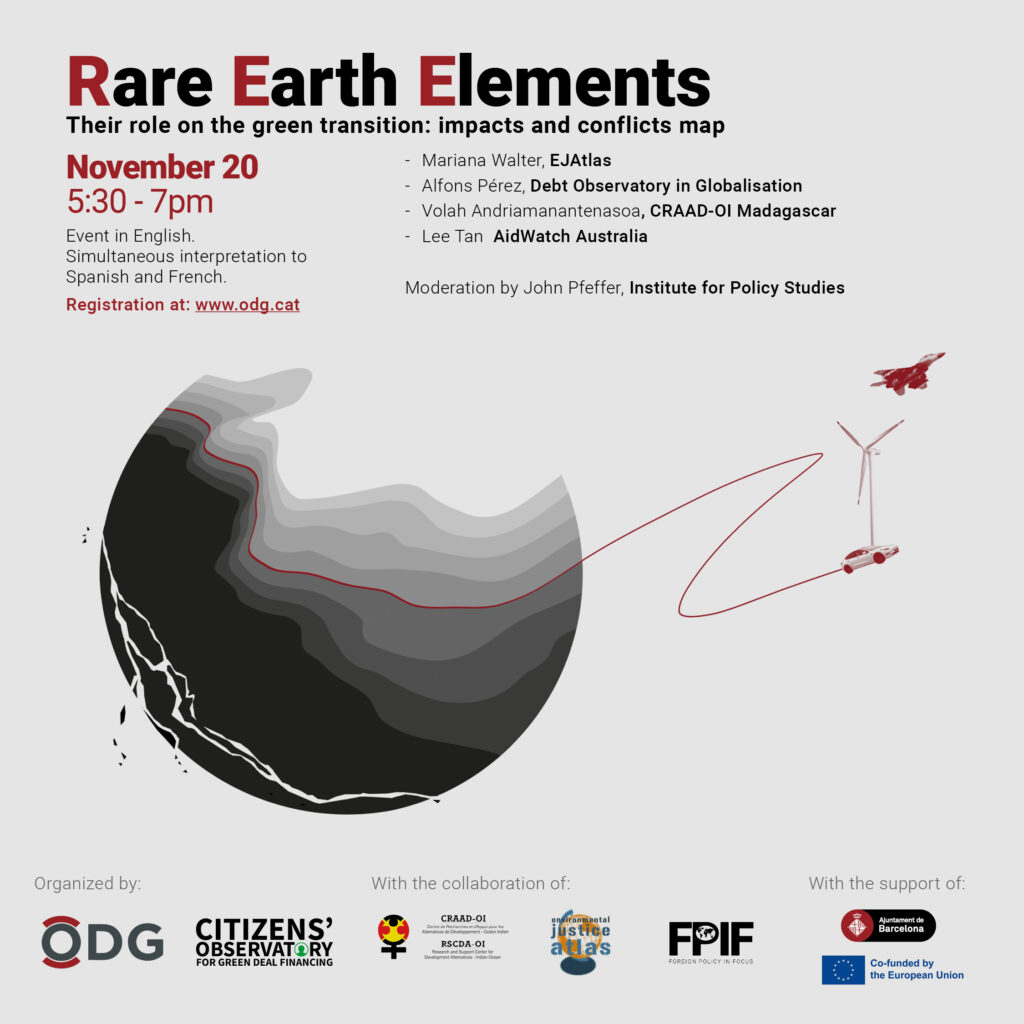
Date: Monday, November 20, 5:30-7:00 pm (CET)
On November 20, a webinar ‘Rare Earth Elements: their role in the green transition’ took place with the aim to present the Rare Earth Elements Impacts and Conflicts Map.
The Debt Observatory in Globalization in collaboration with the Environmental Justice Atlas of ICTA-UAB, the Institute for Policy Studies and CRAAD-OI Madagascar, documented 28 social and environmental conflicts derived from the extraction, processing and recycling of the Rare Earth Elements, strategic minerals for the green and digital transition and also for defense and the aerospace industry, as pointed in the EU Critical Raw Materials Act.
While the central question for industrialized economies has remained how to urgently secure the sources that can meet a booming demand of critical materials for a green and digital transition, the REE Impacts and Conflicts Map highlights the increasingly unsustainable and unjust distribution of environmental, social and health burdens on communities across REE global supply chains.
All these questions were addressed during a conversation between four international speakers with different profiles (plus the moderator), on a webinar attended by 80 people (of which 39 were from the EU). Simultaneous interpretation was provided in English, French and Spanish. Participants could ask questions via the Q and A of the Zoom platform, which were answered during the last half an hour of the webinar.
The aim of the webinar was to present the map and to talk about the environmental, social and human rights injustices and abuses that are taking place along REE global supply chains and how local communities are resisting across the world.
The invited panelists (which can be consulted here) came from different countries and regions of the world and were from civil society organisations as well as research groups. This diversity of speakers generated interest and attracted a large and diverse audience from different parts of the world.
You can look at the map here and consult the report here.
The recording of the webinar is available here.
More details on the webinar and how it was evaluated by the participants through the EU Survey on Justice, Rights and Values, that was sent after the webinar, can be found in the detailed event description here. The overall assessment of the webinar by its participants reached a score of 4,23 out of 5.

